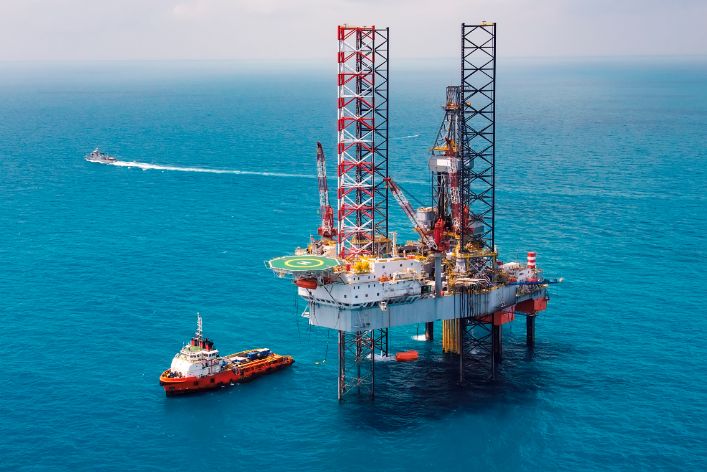Introduction
Being a pipeline engineer in Nigeria can be a challenging but rewarding career path. As the country develops its oil and gas industry, the need for experienced pipeline engineers is becoming increasingly important.
This blog post will provide an overview of pipeline engineering in Nigeria, the role of pipeline engineers, and tips on how to become a successful pipeline engineer in Nigeria.
Brief about Pipeline Engineering in Nigeria
Pipeline engineering involves designing, constructing, operating, and maintaining pipelines used for transporting various materials including oil, gas, water, and other liquids.
In Nigeria, pipeline engineering plays a vital role in the country’s oil and gas industry, which is the backbone of the country’s economy. The petroleum industry accounts for over 80% of Nigeria’s total export earnings.
Importance of Pipeline Engineers
Pipeline engineers are crucial to the success of the oil and gas industry in Nigeria. They help design and construct pipelines that transport crude oil and natural gas from production sites to refineries and other end-users.
Pipeline engineers also ensure that pipelines are safe, reliable, and efficient. They play a critical role in preventing pipeline leakages and minimizing environmental impact.
Purpose of the Blog Post
The purpose of this blog post is to provide useful information and tips for individuals who aspire to become successful pipeline engineers in Nigeria.
The blog will cover the skills and qualifications required, the job outlook, salary expectations, and other essential information that will help aspiring pipeline engineers achieve their goals.
Read: Role of Data Analysts in Driving Nigeria’s Oil and Gas Sector
Basic Requirements to Become a Pipeline Engineer in Nigeria
Becoming a pipeline engineer in Nigeria requires specific skills, knowledge, and qualifications. Whether you are a recent graduate or seeking to switch careers, knowing the basic requirements to become a successful pipeline engineer in Nigeria is critical.
In this article, we will take a closer look at the essential requirements for becoming a pipeline engineer in Nigeria, including educational qualifications, technical skills, soft skills, and certifications.
Educational Qualifications
- A bachelor’s degree in engineering, preferably with a focus on pipeline engineering, is the basic educational requirement for a pipeline engineer in Nigeria.
- Applicants may also be required to have a post-graduate degree in the field of engineering, depending on the employer’s specific requirements.
- It is also essential to have a good understanding of mathematics, physics, and chemistry, as well as a solid foundation in fluid mechanics, materials science, and thermodynamics.
Technical Skills
- Pipeline engineers are expected to have a strong technical background in designing, constructing, and maintaining pipelines.
- Applicants should be proficient in using drafting software, data analysis, and computer-aided design (CAD) systems, and other software tools required for pipeline engineering projects.
- Knowledge of pipeline materials, testing, and inspection, as well as the ability to read and interpret blueprints and schematics, are essential technical skills for a pipeline engineer in Nigeria.
Soft Skills
- Pipeline engineers must be able to work well in teams and collaborate with other professionals, such as project managers, designers, and contractors.
- Strong communication skills and the ability to express ideas and concepts in a clear and concise manner are essential for effective collaboration and project management.
- Problem-solving skills, critical thinking, and decision-making abilities are also essential soft skills required for pipeline engineers in Nigeria.
Certifications to Get an Edge
- Professional certifications can give pipeline engineers an edge and increase their chances of securing job opportunities and promotions.
- For example, certification from the Pipeline Industry Certification Committee (PICC) or the National Association of Corrosion Engineers (NACE) can demonstrate an engineer’s proficiency in pipeline design, construction, and safety.
- Other industry-standard certifications such as the Project Management Professional (PMP) certification or the Certified Six Sigma Green Belt may also be beneficial for pipeline engineers in Nigeria.
Becoming a successful pipeline engineer in Nigeria requires a combination of skills, knowledge, and qualifications.
A strong educational background in engineering, proficiency in technical skills such as drafting, testing, and inspection, and essential soft skills such as communication, collaboration, problem-solving, and critical thinking are all critical requirements for pipeline engineers.
Finally, obtaining professional certifications can also provide an additional advantage for job seekers in the competitive engineering job market in Nigeria.
Read: The Crucial Role of Geophysicists in Nigeria’s Oil Discovery
Internships for Pipeline Engineering in Nigeria
Pipeline engineering internships in Nigeria offer students and young professionals valuable industry experience. Internships provide practical skills beyond classroom learning, deepen industry knowledge, and expand professional networks.
Candidates should research pipeline engineering firms offering internships and customize their resumes to meet the internship requirements. They should also be prepared to submit a cover letter and attend interviews.
Top companies offering internships in Nigeria include Shell Nigeria, Chevron Nigeria, ExxonMobil Nigeria, and Total Nigeria.
Students and young professionals aspiring to be pipeline engineers in Nigeria should consider internships as a career launchpad. These opportunities provide valuable experience, expand professional networks, and impart crucial industry knowledge for their career journey.
Job Opportunities for Pipeline Engineers in Nigeria
Being a pipeline engineer in Nigeria is a lucrative profession that offers a lot of job opportunities. Pipeline engineers are in high demand because the country is one of the top oil-producing countries in the world and has a lot of infrastructure related to oil and gas production.
Employment Opportunities in the Oil and Gas Industry
The oil and gas industry is the main employer of pipeline engineers in Nigeria. The industry offers a diverse range of opportunities that cater to different skill levels and experiences.
Pipeline engineers can work as design and construction engineers, pipeline integrity engineers, inspection engineers, and maintenance engineers, among others.
The oil and gas industry also provides opportunities for pipeline engineers to work in different parts of the country and even abroad.
Read: Top 10 Highest Paying Professions in Nigeria: 2023 Edition
Other Industries That Require Pipeline Engineers
Aside from the oil and gas industry, there are other industries that require the services of pipeline engineers in Nigeria.
These include the water and sewage treatment industry, irrigation and agricultural industries, and the building and construction industry.
These industries use pipelines to transport their products and services, and pipeline engineers are needed to design and maintain these pipelines.
How to Find Job Openings in Pipeline Engineering
To find job openings in pipeline engineering, you can use various methods such as:
- Networking: Building professional networks is one of the best ways to find job openings. Attending industry events, seminars, and conferences can help you meet potential employers and colleagues.
- Online Job Portals: There are several job portals in Nigeria that specialize in the oil and gas industry, and you can find job openings for pipeline engineers on these portals.
- Company Websites: Most companies in the oil and gas industry in Nigeria have career sections on their websites where they post job openings. You can check these websites regularly for updates.
- Recruitment Agencies: There are recruitment agencies in Nigeria that specialize in the oil and gas industry. You can send your CV to these agencies, and they can assist you with finding job openings.
In a nutshell, pipeline engineering is a critical field in Nigeria that offers a lot of job opportunities. Pipeline engineers can find employment in the oil and gas industry and other industries that use pipelines.
To find job openings, pipeline engineers can use various methods such as networking, online job portals, company websites, and recruitment agencies. With the right skills and experience, pipeline engineers can build a successful career in Nigeria.
Read: Oil and Gas Project Management Careers in Nigeria Explored
Strategies to become a successful pipeline engineer in Nigeria
Aspiring to be a successful pipeline engineer in Nigeria? The journey may not be easy, but it is achievable with the right strategies.
Master the Basics
The foundation of your pipeline engineering career lies in understanding the basics. These include fluid dynamics, structural design, materials science, and project management.
It is crucial to have a strong grasp of these fundamental concepts as they form the basis of your work as a pipeline engineer.
Keep Learning and Improving
Pipeline engineering is a constantly evolving field, and staying up-to-date with the latest trends and developments is essential for success.
This means investing time and resources in continuous learning, attending seminars, and training courses. Continuous learning is also an excellent way to enhance your skillset and stay relevant in a highly competitive industry.
Stay Updated with the Latest Technology
Technology has revolutionized every industry, and pipeline engineering is no exception. The future of pipeline engineering is digital, and staying informed about the latest technology is essential.
Embrace new technologies, such as 3D printing, drones, and artificial intelligence. Explore how they can enhance your work as a pipeline engineer.
Network with Other Pipeline Engineers
Networking is an effective way to build valuable relationships and learn from others in the field. Attend conferences, join professional associations, and connect with other pipeline engineers in Nigeria.
Networking with experts in the industry provides a platform for sharing experiences and insights that can help you grow professionally.
Build a Strong Reputation
As a pipeline engineer, your reputation is everything. Building a strong reputation takes years of hard work, dedication, and excellence.
Be reliable, trustworthy, and deliver on your promises. Clients and colleagues need to trust you to deliver quality work every time. A strong reputation is valuable to your career, and it opens up more doors of opportunities.
Becoming a successful pipeline engineer in Nigeria might take some time, but it is achievable.
Mastering the basics, continuous learning, staying updated with technology, networking, and building a strong reputation are some of the key strategies you can follow.
These strategies will help you improve your skills, enhance your knowledge, build relationships, and establish yourself as a valuable asset in the industry.
Read: Field Service Technician: An Unseen Hero in Nigeria’s Oil Sector

Learn More: The Impact of Marine Engineers in Nigeria’s Offshore Oil Rigs
Challenges to Expect in Pipeline Engineering in Nigeria
If you’re aspiring to become a pipeline engineer in Nigeria. There are a few challenges you need to be aware of. These challenges can make or break your career. So it’s essential to prepare yourself and equip yourself with the right skills and knowledge to overcome them. Below are some of the most significant challenges you’ll face:
Security Concerns
One of the most significant challenges you’ll face in pipeline engineering in Nigeria is security concerns. Pipelines are often targeted by vandals, militants, and other criminal elements who see them as easy targets for their illegal activities. This can lead to pipeline damage, explosions, and other accidents that can endanger lives and properties.
As a pipeline engineer, you’ll be responsible for ensuring that pipelines are safe and secure.
You’ll need to work closely with security agencies to develop and implement security measures that can protect the pipelines from attacks and sabotage.
This can be a daunting task, but with the right training and experience, you can overcome this challenge.
Environmental Issues
Pipeline engineering in Nigeria also poses environmental challenges. Pipelines can have significant environmental impacts, including soil erosion, deforestation, water contamination, and air pollution.
These environmental impacts can affect the health and well-being of people and communities living near the pipeline’s route.
As a pipeline engineer, you’ll need to be environmentally conscious and strive to minimize the environmental impacts of pipelines.
To minimize pipeline impacts on the environment, develop and implement environmental management plans, collaborating closely with environmental agencies and stakeholders.
Public Perception of the Oil and Gas Industry
The oil and gas industry is often perceived negatively by the public in Nigeria. This negative perception can affect the pipeline engineering sector, as people may view pipeline engineers as a part of the industry that is causing environmental degradation, social unrest, and other issues.
As a pipeline engineer, you’ll need to change this negative perception by being transparent, accountable, and socially responsible.
You’ll need to communicate with the public and stakeholders and educate them on the benefits of pipelines and how they can be managed sustainably.
Economic Uncertainties
The pipeline engineering sector in Nigeria is affected by economic uncertainties such as fluctuations in oil prices, economic downturns, and recession. These economic uncertainties can affect the job security, salaries, and other benefits of pipeline engineers.
As a pipeline engineer, you’ll need to be resilient, adaptable, and innovative to overcome economic uncertainties.
You’ll need to develop skills that are in high demand and that can help you survive in a competitive and changing job market.
Pipeline engineering in Nigeria is not a walk in the park. You’ll face several challenges, including security concerns, environmental issues, negative public perception, and economic uncertainties.
However, with the right training, skills, and mindset, you can overcome these challenges and become a successful pipeline engineer in Nigeria.
Read: Oil and Gas Law Careers: The Nigerian Perspective
You Might Also Like: Opportunities for Chemical Engineers in Nigeria’s Gas Industry
Conclusion
Becoming a successful pipeline engineer in Nigeria requires a lot of hard work, dedication, and continuous learning. To excel in this field, you need to acquire the necessary qualifications, develop your technical skills, and gain practical experience. You also need to keep yourself updated with the latest developments in the industry.
This blog post emphasizes understanding job nature, networking, mentorship, and seizing opportunities. Developing effective communication and teamwork skills for fruitful collaboration is also crucial.
To all aspiring pipeline engineers in Nigeria, we encourage you to pursue your dreams passionately.
With the right mindset and determination, you can achieve great success in this field. Keep learning, stay focused, and always strive to improve. Remember that every challenge you face is an opportunity to grow and become a better engineer.
Finally, we urge all readers to take action by sharing this blog post with anyone who might benefit from it. Let us inspire more young people to pursue careers in engineering. As well as contribute to the growth and development of our country.




